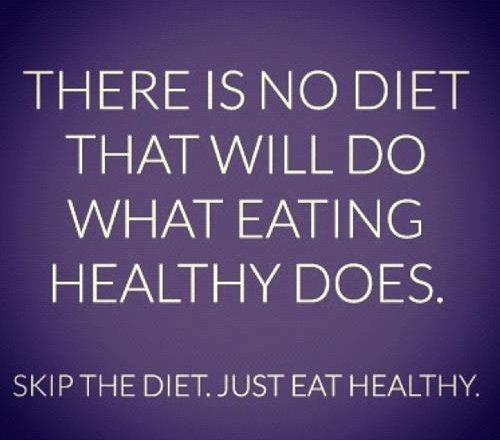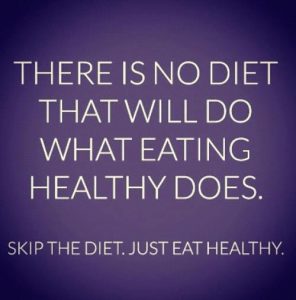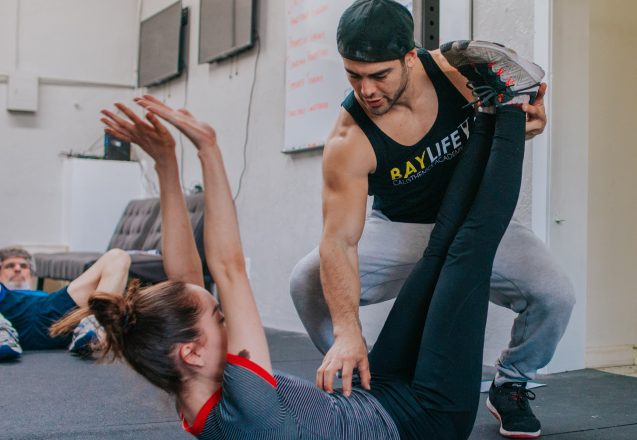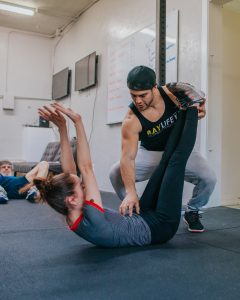Choose Veggies
 People in Irvine, CA, who are the most successful at weight loss choose veggies to dominate their menu. One reason for that is their fiber to calorie ratio. They’re high in filling fiber compared to their relatively low calorie count. They also have more water compared to lower sugar. That means they fill you up before you’ve consumed enough calories to gain weight.
People in Irvine, CA, who are the most successful at weight loss choose veggies to dominate their menu. One reason for that is their fiber to calorie ratio. They’re high in filling fiber compared to their relatively low calorie count. They also have more water compared to lower sugar. That means they fill you up before you’ve consumed enough calories to gain weight.
Some vegetables qualify more as a starch than a vegetable.
There are also some vegetables that are better for weight loss. Vegetables like legumes—chickpeas, lentils, peas, kidney, pinto, navy and black beans—potatoes and corn should be considered starchy food, rather than vegetables. Unlike foods considered vegetables, you can’t consume them as freely as you can the rest of the vegetable family. While all vegetables contain fiber, including starchy vegetables, and all vegetables contain nutrients, starchy vegetables are higher in calories, so you may limit the amount you eat if you want to lose weight.
Both fruit and vegetables should be part of your diet.
Vegetables and fruits should play a prominent role in your diet. Because of the higher sugar content in fruit, rather than eating 2 to 2 ½ cups as you would vegetables, you should limit your fruit intake to 1 ½ to 2 cups a day. Both fruits and vegetables are high in fiber, which can lower blood cholesterol. Consuming fruits and vegetables can lower your risk of some types of cancer and heart disease, reduce the potential for type 2 diabetes and both fruits and vegetables provide phytonutrients and chemicals that help keep you younger and delay illness.
Fill up on veggies, but don’t forget fats and protein foods.
Choosing to put more veggies on your plate and eating those first will certainly help you live healthier and be healthier, but you also need protein and fat. Whether you’re a vegetarian or an omni Varian, you still need the building blocks to create a healthy body. Lean chicken, beans, eggs, cottage cheese and seafood are a few sources of protein. Healthy fat comes from avocados, cheese, fatty fish and nuts, just to name a few sources. Some of the protein sources and fat sources overlap other categories, including vegetables.
- Eating more vegetables means getting more fiber. Fiber not only helps keep you regular, it also helps you eat less, live longer, keep blood sugar regulated and lower cholesterol.
- Women of childbearing ages should definitely eat more fruits and vegetables to benefit from the folic acid they contain. Folate helps prevent birth defects.
- Eating whole veggies and fruit, as opposed to taking a pill or consuming processed foods, provide a spectrum of nutrients that act in synergy to boost good health at the cellular level.
- Creating a colorful plate of fruits and vegetables can provide most of the nutrients the body needs, since each color represents different vitamins, minerals and phytonutrients.



 One of the biggest problems faced by many women who come into the gym is the accumulation of fat around the middle, especially on the belly. You can reduce belly fat and get those flat abs everyone wants, but it takes more than just exercise to do it. Belly fat is viscous fat, which is the unhealthiest type of fat that’s also the toughest to eliminate. Getting rid of it means making several lifestyle changes.
One of the biggest problems faced by many women who come into the gym is the accumulation of fat around the middle, especially on the belly. You can reduce belly fat and get those flat abs everyone wants, but it takes more than just exercise to do it. Belly fat is viscous fat, which is the unhealthiest type of fat that’s also the toughest to eliminate. Getting rid of it means making several lifestyle changes.
 No matter where you live, if you’re working out, you probably want to burn fat and build muscle tissue. Clients in Irvine, CA, who want to lose weight, often use a personal trainer to learn lean muscle workouts that help them do both. While doing any type of workout will help you lose weight, not all workouts will help you build muscles at the same time. Building muscle tissue is important. The more muscle tissue you have, the easier it is to keep weight from returning in the future. Muscle tissue requires more calories for maintenance than muscle tissue does.
No matter where you live, if you’re working out, you probably want to burn fat and build muscle tissue. Clients in Irvine, CA, who want to lose weight, often use a personal trainer to learn lean muscle workouts that help them do both. While doing any type of workout will help you lose weight, not all workouts will help you build muscles at the same time. Building muscle tissue is important. The more muscle tissue you have, the easier it is to keep weight from returning in the future. Muscle tissue requires more calories for maintenance than muscle tissue does.
 There’s no way to do a spot exercise and expect fat to come off just that spot. It’s true whether you’re talking about belly fat, inner thigh fat or fat on your booty. When you lose weight, it comes off your entire body, no matter how many spot exercises you do. However, exercise can tone the muscle under the fat to give some of the results you’ve hoped to achieve. It won’t make you lose weight just on your inner thighs, but will help improve the appearance.
There’s no way to do a spot exercise and expect fat to come off just that spot. It’s true whether you’re talking about belly fat, inner thigh fat or fat on your booty. When you lose weight, it comes off your entire body, no matter how many spot exercises you do. However, exercise can tone the muscle under the fat to give some of the results you’ve hoped to achieve. It won’t make you lose weight just on your inner thighs, but will help improve the appearance.
 If you’re trying to lose weight or just get out of the junk food habit, menu planning and food prep should be top priority. Too often plans for healthy eating go down the drain the first time you have to stop at the store on the way home from work or can’t figure out what to make for supper. Instead of getting groceries, getting take-out sounds a lot better! That’s easy to understand in today’s busy world. Here are some ways to avoid that hassle and make eating healthy a breeze.
If you’re trying to lose weight or just get out of the junk food habit, menu planning and food prep should be top priority. Too often plans for healthy eating go down the drain the first time you have to stop at the store on the way home from work or can’t figure out what to make for supper. Instead of getting groceries, getting take-out sounds a lot better! That’s easy to understand in today’s busy world. Here are some ways to avoid that hassle and make eating healthy a breeze.
 Most of our clients in Irvine, CA, use their trainer and our expertise to find the right diet, if you’re working on your own, it’s not nearly as easy. Before you begin, you need to know what a healthy diet consists of and what your personal goals are. We consider food sensitivities, so should you. No matter how great a specific food is, if it doesn’t agree with you, it shouldn’t be part of your diet. There are some basics for any healthy diet.
Most of our clients in Irvine, CA, use their trainer and our expertise to find the right diet, if you’re working on your own, it’s not nearly as easy. Before you begin, you need to know what a healthy diet consists of and what your personal goals are. We consider food sensitivities, so should you. No matter how great a specific food is, if it doesn’t agree with you, it shouldn’t be part of your diet. There are some basics for any healthy diet.
 It’s important to have the best trainer to achieve your goals, especially since you’re putting in time and money to get results. There are questions you should ask your personal trainer to make certain that the effort you put in will get the results you want. Not all trainers are the same. Some have the top credentials and get results quickly, while others don’t. The first question you need to ask is about the trainer’s qualifications. What type of credentials does the trainer have and what certifications? Make sure those qualifications are respected in the field and that the trainer also keeps abreast of the latest research.
It’s important to have the best trainer to achieve your goals, especially since you’re putting in time and money to get results. There are questions you should ask your personal trainer to make certain that the effort you put in will get the results you want. Not all trainers are the same. Some have the top credentials and get results quickly, while others don’t. The first question you need to ask is about the trainer’s qualifications. What type of credentials does the trainer have and what certifications? Make sure those qualifications are respected in the field and that the trainer also keeps abreast of the latest research.
 If you’re wondering what angiogenesis, all you have to do is break the word apart and identify the meaning of each part. Angio relates to the blood vessels and genesis is a suffix that means the beginning or development of something. Put them together and they mean the study of how blood vessels develop. Throughout your life, capillaries grow and diminish, based on the need at the time. If you have a wound, more capillaries grow to help it heal. That’s caused by a release of chemicals that induce the growth or splitting of blood vessels to create more.
If you’re wondering what angiogenesis, all you have to do is break the word apart and identify the meaning of each part. Angio relates to the blood vessels and genesis is a suffix that means the beginning or development of something. Put them together and they mean the study of how blood vessels develop. Throughout your life, capillaries grow and diminish, based on the need at the time. If you have a wound, more capillaries grow to help it heal. That’s caused by a release of chemicals that induce the growth or splitting of blood vessels to create more.
 Some people exercise to shed pounds and look better, while others may just love the boost of energy they get and feeling good. No matter what the reason you workout, you get the same results, exercise improves your health. It builds your energy and makes changes to your body that can add years to your life. Your body has five systems that when functioning properly, keep you healthy. They’re microbiome, angiogenesis, stem cells, immune system and DNA protection. Exercise helps all those areas.
Some people exercise to shed pounds and look better, while others may just love the boost of energy they get and feeling good. No matter what the reason you workout, you get the same results, exercise improves your health. It builds your energy and makes changes to your body that can add years to your life. Your body has five systems that when functioning properly, keep you healthy. They’re microbiome, angiogenesis, stem cells, immune system and DNA protection. Exercise helps all those areas.